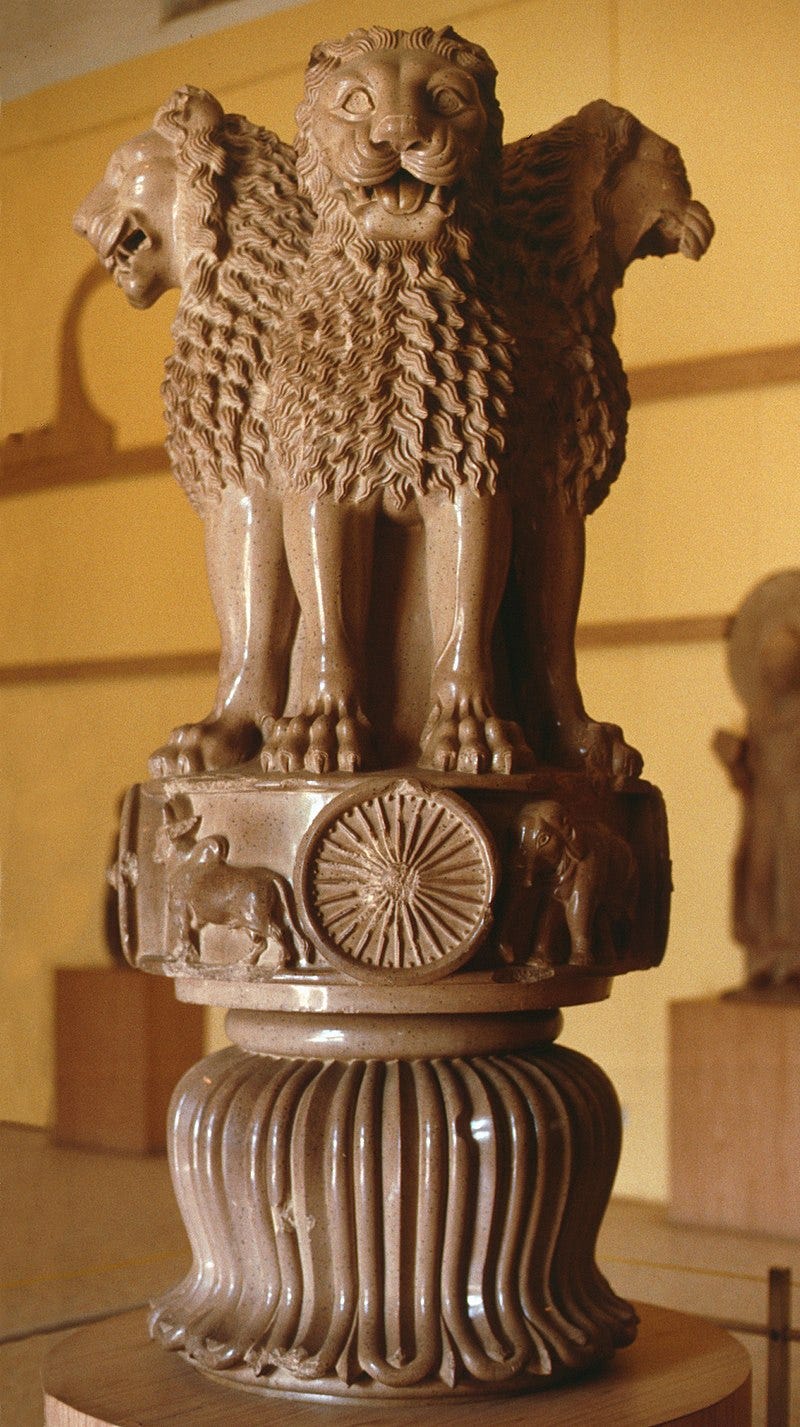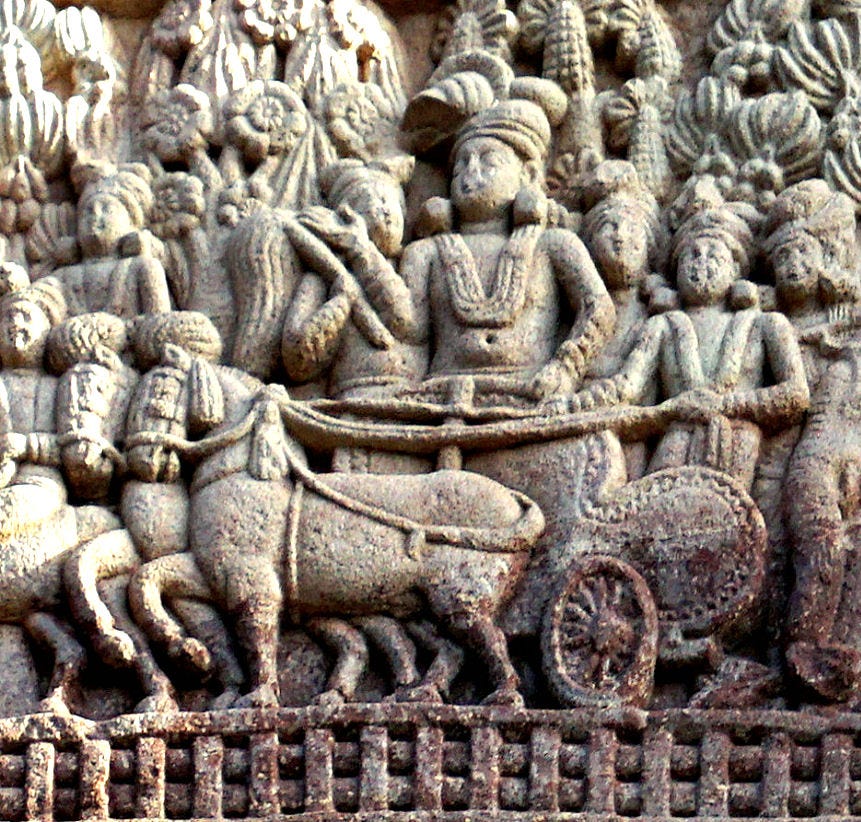Ashoka the Great Was, In Fact, Pretty Great
And his legacy is more important than ever as India becomes a great power

Living in an age of extraordinary technological and socioeconomic advances, it’s easy to construct a mental model of history as a teleological “Whig” progression from better to worse, with the past few millennia as mere “Dark Age” forerunners of Modernity, the surge of incredible global progress in literacy, health, and prosperity in the two centuries since the Industrial Revolution. There’s a lot of truth to this: we are in a period of unprecedented global prosperity! It’s all too easy to mentally round off empires and wars from Assyria through the Ashanti as a mere parade of slavery, conquest, and senseless bloodshed: “Those Ancient Guys Who Sucked.” That’s a gross oversimplification, of course, eliding centuries of complexity, but there is a grain of truth to it. Most historic rulers and monarchs are indeed terrible people from today’s point of view: rare is the premodern potentate who did not regularly enslave, conquer, and order actions that would now be considered war crimes.
However, there is one particularly notable exception. As H.G. Wells once wrote “Amidst the tens of thousands of names of monarchs that crowd the columns of history, their majesties and graciousnesses and serenities and royal highnesses and the like, the name of Ashoka shines, and shines, almost alone, a star.”
Note to readers: if you’re from India, this article may seem to discuss common knowledge to the point of banality, akin to an American reading an article on how Abraham Lincoln is generally considered a morally upright guy. But this writer has found that the history of Ashoka and the Maurya Empire remains surprisingly little-known in North America and Europe, so it’s worth discussing!
Full article below paywall
Keep reading with a 7-day free trial
Subscribe to The Weekly Anthropocene to keep reading this post and get 7 days of free access to the full post archives.





